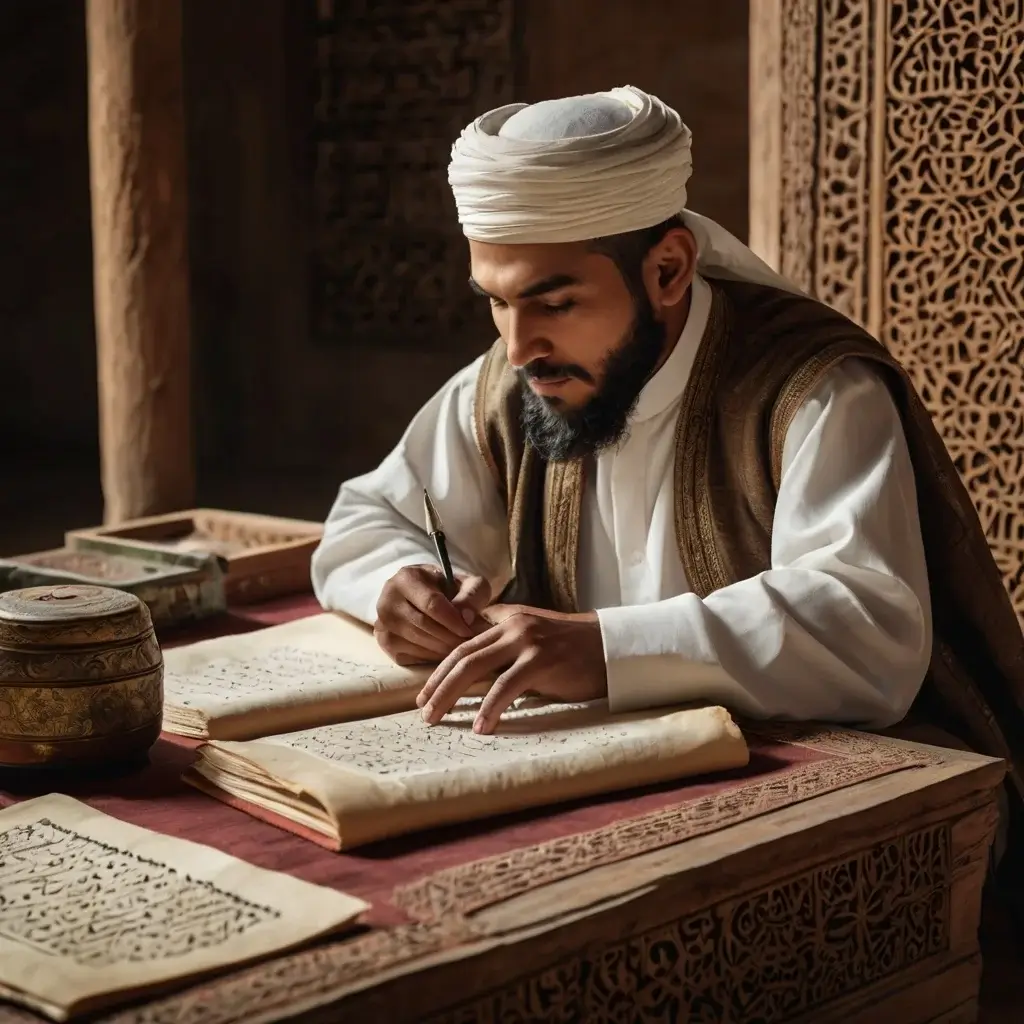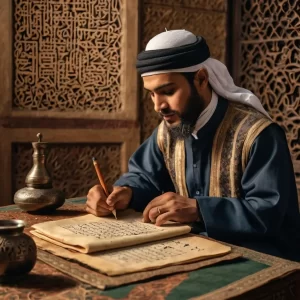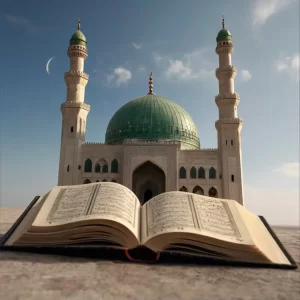Who Wrote the First Quran? The origins and authorship of the Quran are subjects of deep interest and reverence among Muslims and scholars worldwide. The Quran, regarded as the literal word of God (Allah) revealed to the Prophet Muhammad (peace be upon him), holds a central place in the Islamic faith. This article explores the history of how the Quran was first written, its initial recordings, and its preservation over time.
Who is the Original Author of the Quran?
According to Islamic belief, the Quran was authored by Allah. It is viewed as divine revelation conveyed to the Prophet Muhammad over a period of 23 years, beginning in 610 CE. The Angel Gabriel (Jibreel) delivered these revelations, which were then orally transmitted by the Prophet to his companions. These companions memorized the verses and also wrote them down on various materials.
What Was the First Written Quran?
During the lifetime of Prophet Muhammad, the Quran was not compiled into a single book. Instead, it existed in the form of oral recitations and written fragments on materials such as parchments, stones, and leaves. The first comprehensive effort to compile the Quran into one book began after the Prophet’s death, under the leadership of the first Caliph, Abu Bakr, and later finalized during the caliphate of Uthman ibn Affan.
Who Wrote the First Quran?
The task of compiling the Quran into a single, cohesive manuscript was undertaken by Zayd ibn Thabit, a trusted companion and scribe of the Prophet Muhammad.
The Role of Zayd ibn Thabit
Zayd ibn Thabit was selected for his exceptional intelligence and deep understanding of the Quran. After the Prophet’s death, the first Caliph, Abu Bakr, saw the urgent need to compile the Quran into one document, particularly after the Battle of Yamama, where many memorizers of the Quran (hafiz) were martyred. This tragic event underscored the necessity of preserving the Quranic text.
Under Abu Bakr’s directive, Zayd ibn Thabit meticulously gathered the Quranic verses from various written fragments and cross-referenced them with the memorized recitations of the Prophet’s companions. This ensured the accuracy and comprehensiveness of the compiled text.
Uthman ibn Affan’s Contribution
The Quran remained in this compiled form throughout the caliphates of Abu Bakr and Umar ibn al-Khattab. However, as Islam expanded rapidly, discrepancies in the recitation of the Quran started to appear across the growing Islamic empire. To address this, the third Caliph, Uthman ibn Affan, took decisive steps.
Uthman commissioned Zayd ibn Thabit once again, along with a committee of knowledgeable companions, to produce a standardized version of the Quran. This version was carefully copied and distributed to key Islamic centers. Uthman’s efforts ensured that the Quranic text was uniform and protected from regional variations in dialect and pronunciation.
Ensuring Uniformity and Preservation
Uthman’s initiative to distribute standardized Quranic manuscripts to major Islamic cities and order the destruction of all other variant copies was crucial in maintaining the consistency of the Quran. This standardization has helped preserve the Quran in its original form, ensuring that Muslims today recite the same Quran revealed to the Prophet Muhammad over 1400 years ago.
When Was the Quran Written?
The revelations of the Quran began in 610 CE and continued until 632 CE, the year of the Prophet Muhammad’s passing. The initial compilation occurred shortly after the Prophet’s death, during Abu Bakr’s caliphate (632-634 CE), with the standardized text completed around 650 CE under Uthman’s rule.
How Old is the First Copy of the Quran?
How Old is the First Copy of the Quran?
The oldest existing copies of the Quran date back to the 7th century, closely aligning with the period of Uthman ibn Affan’s standardization. Notable manuscripts like the Birmingham Quran manuscript and the Sanaa manuscript are among the oldest known fragments, with radiocarbon dating placing them within a few decades of the Prophet Muhammad’s lifetime.
Who is the Founder of Understand Quran?
The comprehensive understanding of the Quran has been an ongoing effort by Islamic scholars since the time of the Prophet. Early scholars, such as the Prophet’s companion Abdullah ibn Abbas, played pivotal roles in interpreting the Quran. Later figures, like Imam Al-Bukhari, and modern scholars and organizations continue this tradition of Quranic education and interpretation.
How Many Authors Wrote the Quran?
From an Islamic viewpoint, the Quran is authored solely by a divine entity.: Allah. The revelations were given to the Prophet Muhammad and transcribed by his companions. The consistency and preservation of the Quranic text over the centuries underline its uniqueness compared to other historical documents, which often had multiple human authors.
About Al-Walid Academy
At Al-Walid Academy, we are dedicated to providing high-quality education in Quran memorization and reading basics, as well as Arabic language Courses. Our expert teachers guide students through a comprehensive learning journey, ensuring a deep and meaningful understanding of the Quran and its teachings. Join us today to embark on your path to Quranic knowledge and spiritual growth.
Conclusion
Understanding the origins and compilation of the Quran sheds light on its sacred status and the meticulous efforts made to preserve its text. As the word of God, it remains a cornerstone of faith for Muslims. For those interested in learning the Quran, engaging with authentic teaching platforms is crucial.
I hope that you found your answer about Who Wrote the First Quran.
FAQs
Q1: Who physically wrote the first Quran?
A: The Prophet Muhammad’s scribes, notably Zayd ibn Thabit, wrote down the revelations.
Q2: How was the Quran preserved before it was compiled into a book?
A: It was preserved through memorization by the Prophet’s companions and by writing on various materials like parchments and stones.
Q3: Is the Quran we have today different from the original revelations?
A: The Quran today is considered identical to the original revelations given to the Prophet Muhammad, preserved meticulously over centuries.
Q4: Why is Uthman’s compilation significant?
A: Uthman’s compilation standardized the Quranic text and ensured uniformity across the Islamic empire, preventing discrepancies.
Q5: How can I start learning the Quran?
A: You can start by joining reputable Quran learning academies like Al-Walid Academy, which offers courses in Quran memorization, Quran reading basics, and Arabic language learning.



